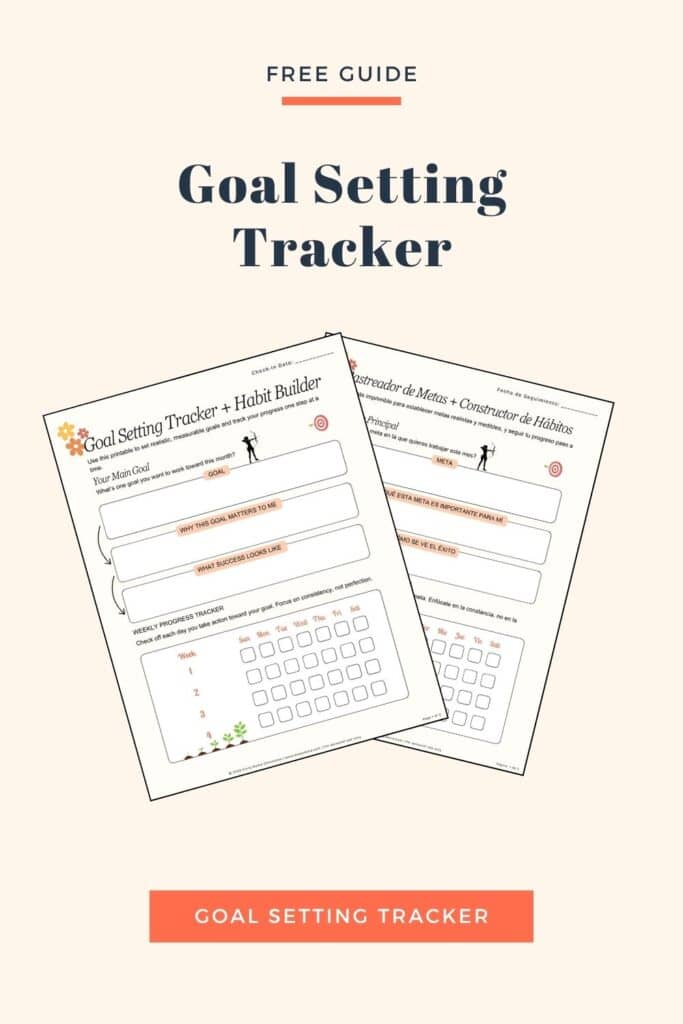Why New Year’s Resolutions Fail (and How to Set Realistic, Achievable Goals Instead)
Most people abandon their New Year’s resolutions by mid-January. Sound familiar? You start pumped with a “new year, new me” mindset, but somewhere between the gym runs and the detox teas… motivation crashes.
So why do New Year’s resolutions fail so often? And what can you do differently this time? Let’s break it down and, more importantly, let’s build a better way to set goals that stick.
Why New Year’s Resolutions Fail
- They’re based on a Date, Not Real Readiness: January 1st feels symbolic, but if you’re not mentally and emotionally prepared for change, the calendar won’t carry you. Lasting change doesn’t follow a deadline; it follows commitment.
- They Lack Realistic Goal Setting: Setting goals like “lose 30 lbs in a month” or “save $10K this year” without a strategy is just wishful thinking. Without realistic timelines and steps, you’re just setting yourself up for frustration.
- They aren’t Measurable: Saying “I want to be healthier” or “get my life together” is too vague. Measurable goals provide a clear target to track, making progress feel tangible and real.
Why It’s Important to Set Realistic Goals
Unrealistic expectations are the number one dream killers. If your goal doesn’t align with your current season of life, energy, or time, it will lead to burnout.
A realistic goal is one that:
- Fits your lifestyle
- Has clear steps
- Doesn’t rely on perfection
- Leaves room for grace
Example: Instead of “Work out every day,” try “Move my body 3x a week for 20 minutes.”
Realistic Goals Still Need to Be Measurable
Goals that can’t be tracked can’t be improved.
- They give you proof of progress.
- You’ll know when you’re off track without guessing
- You can adjust your plan based on real data
Example: “Save $500 by April” is clear and measurable. “Get better with money” is not.
How Can You Make Sure You’re Being Realistic When Setting Goals?
Here’s your gut-check list before committing:
- Time: Can I realistically commit to this with my current schedule?
- Resources: Do I have what I need to follow through?
- Why: Am I doing this for myself, or to impress someone?
- Backup Plan: What will I do when motivation dips?
Hint: If it feels exciting and manageable, you’re on the right track.
How to Set Achievable Goals That Actually Stick
Let’s skip the self-sabotage and try this instead:
- Start Small: Pick one goal to work on this month. Just one. Mastering one habit is better than half-doing five.
- Make It Measurable: Use numbers, checklists, or apps to track your progress. Bullet journal? Digital habit tracker? Whatever works for your brain.
- Set Deadlines for Yourself: Establish checkpoints, such as weekly or monthly progress reviews, to stay on track.
- Celebrate Progress: Don’t wait until the finish line. Did you stick to your bedtime for four nights this week? That’s a win.
Realistic Goal Setting vs New Year’s Resolutions
Forget resolutions. Try these instead:
- Monthly themes (e.g., “January: Prioritize Sleep,” “February: Meal Planning Wins”)
- Word of the Year (like grace, focus, or growth)
- Quarterly vision boards or check-ins
- Mini habits that stack onto what you already do
FAQs About New Year’s Resolutions
Why do most New Year’s resolutions fail?
Most fail due to unrealistic expectations, lack of planning, and starting from social pressure rather than genuine readiness.
How can I stay motivated after the new year?
Focus on small wins, journal your progress, and gradually build momentum with achievable habits.
What are better alternatives to New Year’s resolutions?
Monthly goals, habit tracking, and seasonal intention-setting are more flexible and often more successful.
Let’s Recap: Why New Year’s Resolutions Fail
- They’re driven by hype, not habits
- They’re too big, too fast, too vague
- They lack realistic, measurable, achievable steps
But now? You know better. And that means you’ll do better.
What About You?
Have you struggled with goal setting in the past? What’s worked or flopped? Drop a comment and let’s talk about it.

Free Download: Goal Setting Tracker
Want a printable to help you stay on track this year? Grab my free “Goal Setting Tracker + Habit Builder” below to get started.
Keep Growing with Me
If this post helped you rethink resolutions, you might also like:
- My Curly Hair Transformation Journey (A real-life example of gradual, lasting change)
- Low Porosity Hair Tips (because progress isn’t always fast, but it’s always worth it)
And don’t forget to subscribe for updates on personal growth, motherhood, curly hair care, and simple routines that work.
Let’s Make Inbox Magic
Join my circle to unlock the Curly Mama Freebie Library, your all-access pass to printables, checklists, and resources made for busy moms and curly hair lovers.





